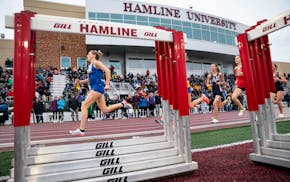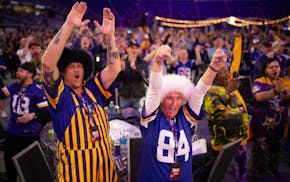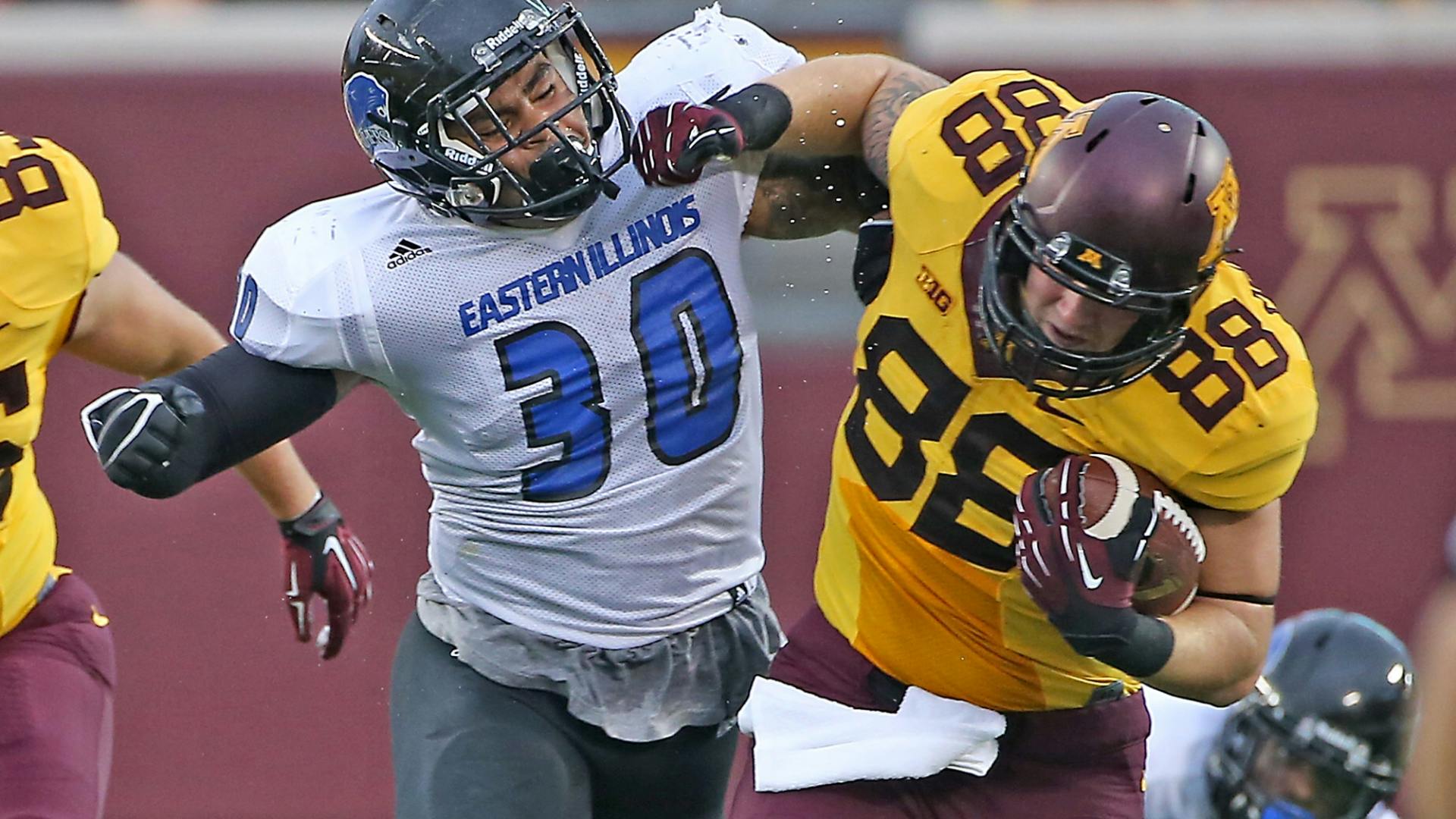The training room is getting crowded, the sight of knee braces and crutches all too familiar.
The Gophers football team is 2-0, but already five players have torn an anterior cruciate ligament in their knee.
Coach Jerry Kill announced Tuesday that backup middle linebacker Nick Rallis has been added to the list of players with season-ending knee injuries. Though Kill didn't give specifics, Rallis joined the list of ACL patients, joining linebacker Cody Poock, defensive tackle Scott Ekpe, tight end Duke Anyanwu and offensive lineman Jared Weyler.
But Kill had good news about another knee injury. Quarterback Mitch Leidner, who sprained the medical collateral ligament in his left knee Saturday, was gearing up for Tuesday's practice.
"I can't guarantee anything" about Leidner's availability for Saturday's game at Texas Christian, Kill said. "But I can guarantee you that he's going to practice, and that will help us determine some things."
Tight end Maxx Williams, Leidner's close friend, was more emphatic.
"Mitch is going to play, no doubt in my mind," Williams said. "Mitch is one of the toughest guys I know, by far. I couldn't even tell if anything was wrong with him. … All I know is he's in there practicing with us."
Leidner got hit in the knee while releasing a pass in the fourth quarter against Middle Tennessee State. The trainers put a brace on the knee, and he ran along the sideline but had trouble replicating his drop-back motion.
The Gophers used backup Chris Streveler for the final two series of the 35-24 victory. Kill said he would have Leidner and Streveler ready to start at TCU. The plan was to give Leidner a few reps Tuesday to better gauge his status, while giving Streveler and No. 3 quarterback Jacques Perra crash courses with the first-team offense.
Asked for his gut feeling on Leidner, offensive coordinator Matt Limegrover said: "My gut, the medical report, everything — I mean, I'm a business-as-usual guy, until told otherwise. And so we're business as usual. We're in there preparing right now for practice and expect to be at full-force."
But the Gophers' depth is thinning in other areas.
Poock is a junior college transfer who looked slated to start at outside linebacker before tearing an ACL in March. This injury once ended careers, but surgical advancements and better rehab practices have made many athletes stronger upon their return. Vikings star Adrian Peterson set a new standard when he returned from his Christmas Eve ACL injury in 2011 by the following season's first game and proceeded to rush for nearly 2,100 yards.
Last year, Michigan linebacker Jake Ryan tore an ACL in spring practice and returned for the Big Ten season. Poock's surgery and rehab have gone so well, he is already back in contact drills for the Gophers, who haven't ruled out him returning this season.
The team's other ACL injuries, however, are season-enders.
Anyanwu was the team's second-best pass-catching tight end behind Williams before he tore an ACL on Aug. 2. Weyler likely would have redshirted at tackle, but his ACL injury was another unfortunate preseason moment.
Then the games started. Ekpe tore his ACL on the season's first defensive series against Eastern Illinois. Defensive end Alex Keith also suffered an unspecified knee injury in that game, keeping him out against Middle Tennessee.
To fill those holes, the Gophers gave three true freshmen — Steven Richardson, Andrew Stelter and Gaelin Elmore — extensive playing time on the defensive line.
And then came Rallis' injury. Besides being able to play all three linebacker positions, the sophomore had become a special teams force. He injured himself covering a punt, and the Gophers immediately pulled a potential redshirt from freshman Everett Williams.
The second-team linebacker unit now could hardly be younger: Williams, redshirt freshman DeNiro Laster and true freshman Jonathan Celestin.
"I feel bad for [Rallis]," Kill said. "He's worked so hard and so forth. You don't want to see that happen to kids but unfortunately in this game, it happens."
In that sense, Leidner was relatively fortunate. It could have been worse.

Hamline Elite Meet, already in rare air, presents co-ed look for track
Bevy of defensive playmakers are available in Round 2 of the NFL draft after historic offensive run
Twins bring momentum on road despite Angels Stadium struggles

Neal: McCarthy mania sweeps through Vikings draft party


